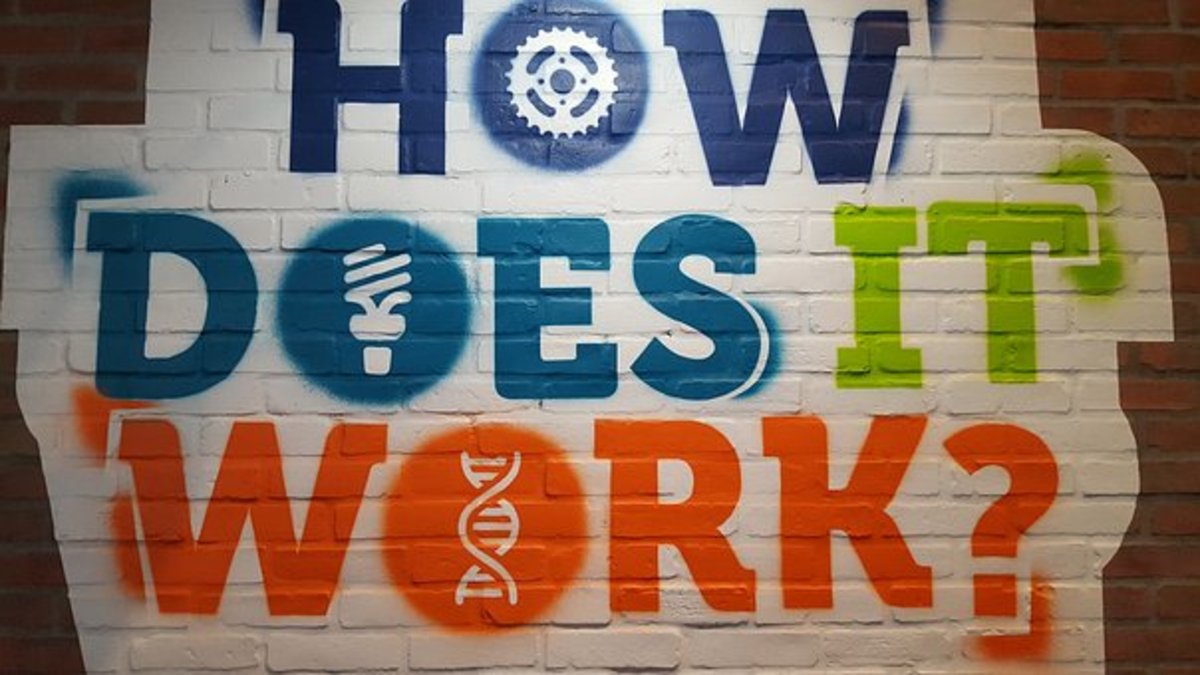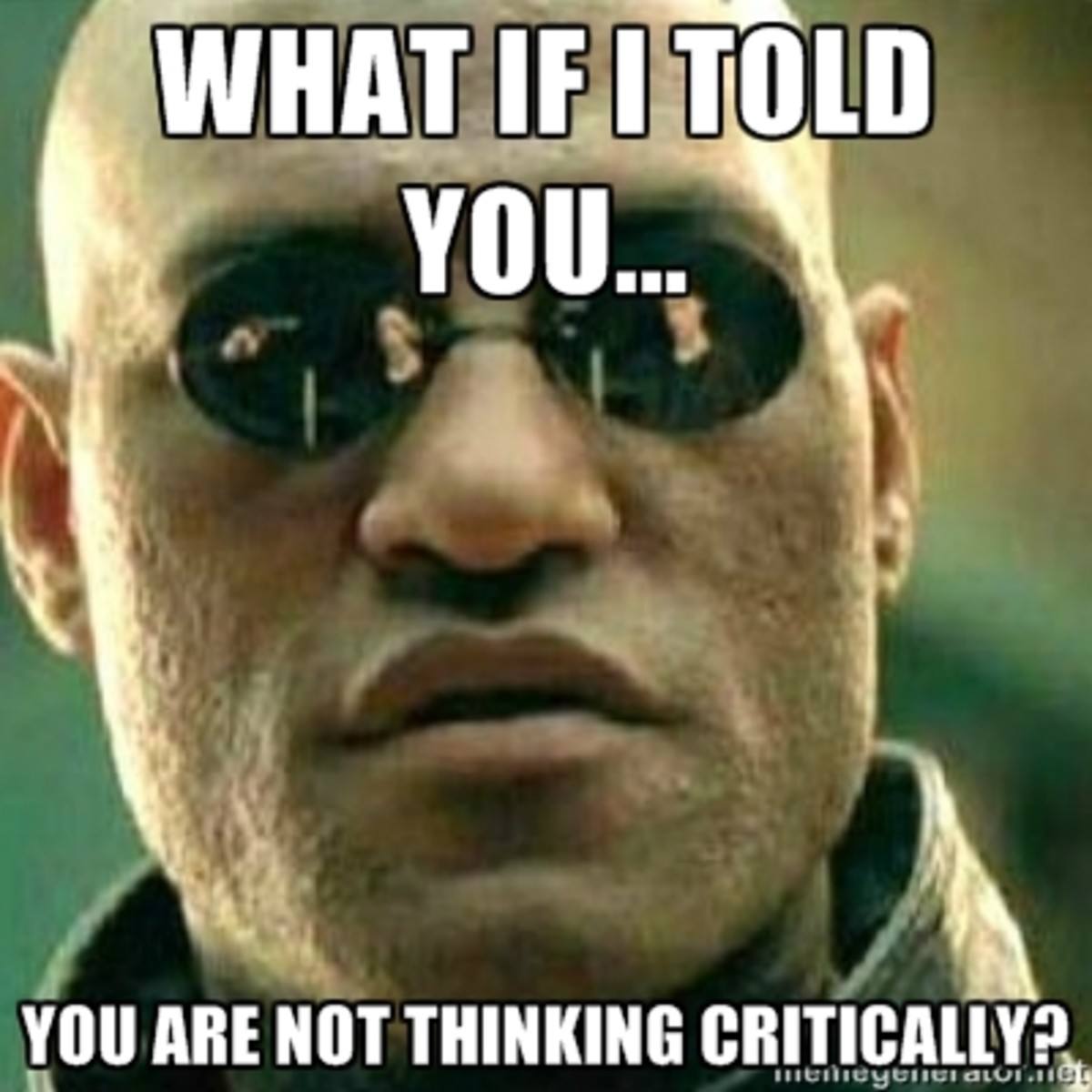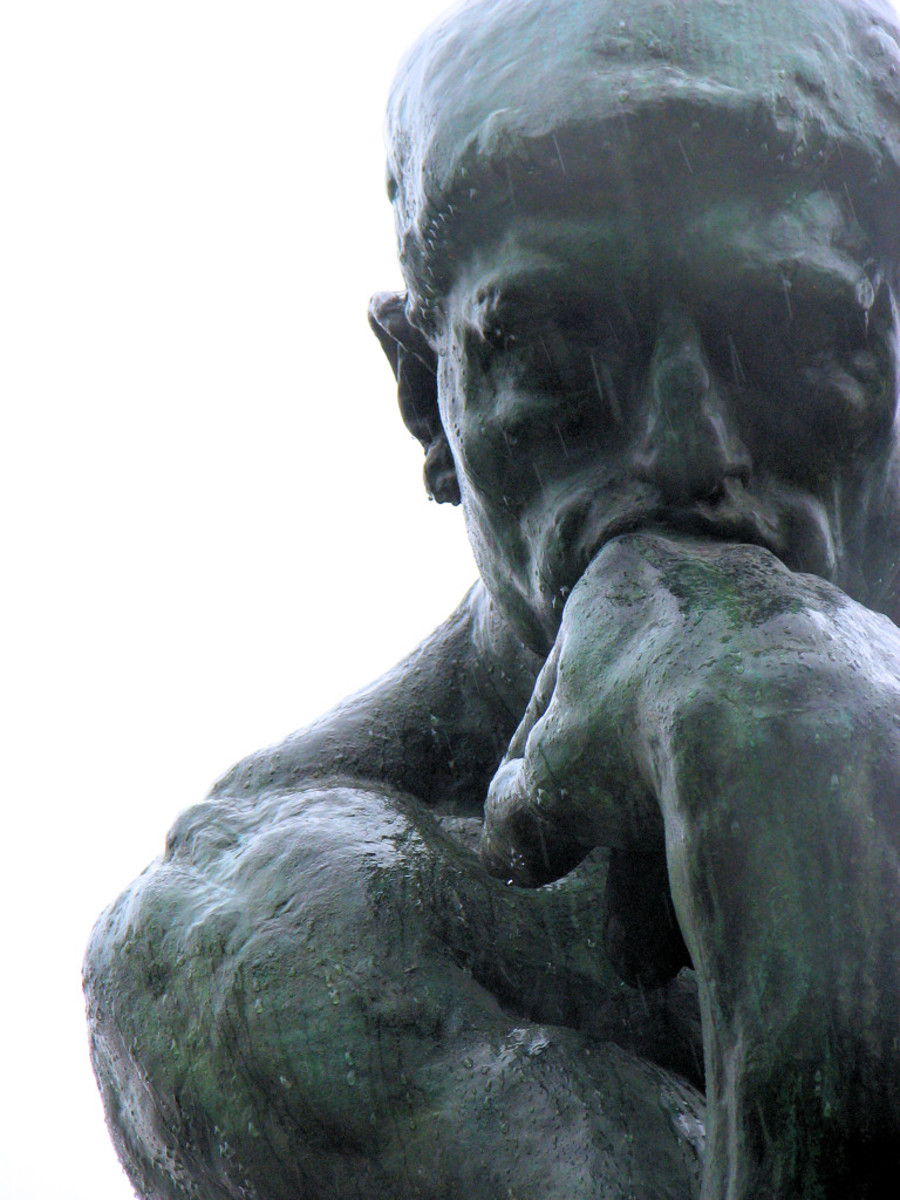Critical Thinking Skills have never been more critical

The challenge of the next 100 years
We make thousands of decisions every day. Some of these are so intuitive that we aren't even aware we're making them - like hitting your space bar. Others require us to take the time to weigh the necessity, consequences, options and a multitude of other parameters to determine our best course of action or how to respond. To sort through all the possibilities and make the best choice we can at that moment requires critical thought.
As the world becomes more globally interconnected, it also gets more complicated, irrational, unstable, distracting, deceitful, stressful - and frankly - downright dangerous. With all that comes the need for each of us to interpret more complex sets of parameters to make good decisions.
There is no "truthipedia" to guide us and "common sense" is a whole lot less common than it use to be. It's absolutely vital that we teach our kids the critical thinking skills they'll need, to function effectively in a world that will be vastly more complex and challenging than we're dealing with today.
Photo: Vanishing pier by Ravages [(CC BY-NC-SA 2.0] on Flickr.
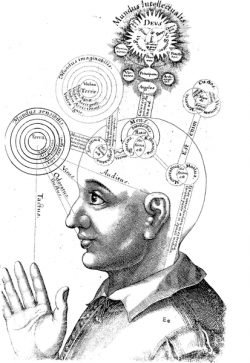
What's critical thinking?
How you make up your mind
Thinking critically means using reason and judgment to analyse and evaluate information - including it's source - to decide what we will do or what to believe.
One of the ways we use our critical thinking skills is determining whether something is true or false, and more importantly, if it's partly true, mostly true or possibly true in some situations.
Interestingly, educator, Richard Paul has added further clarification in identifying a "weak sense" critical thinker as someone who's highly skilled but selfishly motivated and gives little thought to ethics and it's implications (see internet marketing scams below). A "strong sense" critical thinker evaluates an issue or problem for what it is, without a real personal bias. Strong sense critical thinking is more fair and balanced, and leads to higher quality learning and thought. (ref. Wikipedia)
Photo: Public Domain on Wikimedia Commons
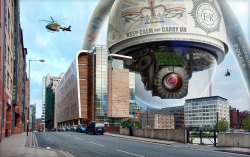
What's "good" Government
Big Government vs Small Government
There are people who decry the "nanny state", citing all kinds of ways the government imposes itself on society, restricting "Freedom" and "Liberty". Some suggest government just should "get out of the way" and leave people and "the market" to make their own decisions. This is typically considered to be a conservative point of view with emphasis on individualism. Many "small government" advocates make the argument for more individual freedom but seem to give little thought to how that might actually work in the real world.
Are "individuals" equipped to make rational, informed decisions in their own best interests in areas they know little or nothing about? What would be the effect on that society in general?
Advocates of what's been called "big government" are more inclined to think of society collectively, recognizing that individuals have different levels of skills and abilites. This is typically considered to be a liberal point of view with emphasis on the overall public benefit.
A civil society needs certain rules and regulation to maintain order and protect our health, safety and rights as individuals. Without those rules, chaos would fill the void as the "weak sense" thinkers looked out for themselves and "strong sense" thinkers concluded that working together for mutual benefit is the logical course.
While I agree there are situations best left to individual determination, as well as many things the government should do to for it's citizens, in a world that's becoming more complex, we all need to know "how" to make good decisions as individuals, as well as assess the decisions our government is making on our behalf.
Photo: One Nation Under CCTVBy tj.blackwell [CC BY-NC-SA 2.0] on Flickr.

Education and learning
Are we protecting our kids or overprotecting them?
When I was growing up we spent an incredible amount of time free ranging in the neighbourhood. We'd get a call to come in for supper and head out again until dark. What did we do? We just made up stuff to do, we'd play with cardboard boxes, ride our bikes through the mud, have acorn wars, play tag or catch or climb trees.... all unstructured and largely creative play. Yes, sometimes we got hurt, that's how we learned what to do better, differently or never again. That scraped knee or broken wrist provided new sensory input that informed each future decision to try something new.
Sometimes it seems like kids today are born wearing a helmet, wrapped in a protective shield, and have their entire childhood schedule mapped out before they leave the womb - cell phone in hand. While I recognize the world has changed since I was a kid, do children really get enough time to just.... play?
I suspect the answer to this is....some do...some don't.
Is enrolling your kids in back-to-back organized activities really the enriching experience for your child that you think it is? That's a question only you and your child can answer, but do you ever ask yourself that question? Or them? Does your child have a choice?
I posed those questions not to criticize parents, but to make a point. Even young children need to make decisions - right or wrong - to learn the consequences of their actions. And they need to learn all the ramifications related to those decisions in order to make better ones down the road. Through experience, they learn how to use their judgment and reasoning skills - the essence of critical thinking.
Simply put - we need make sure our children learn how to learn on their own.
Photo: Happy Girl Hopscotch By Pink Sherbet Photography [CC BY-NC-SA 2.0] on Flickr.
What do you think?
Are we properly preparing our kids for the future?

Navigating the future
The need for critical thinking skills
The world is in the midst of transformational economic, political, social, technological and climatic change. This has all the elements of a "perfect storm" that's not going to pass quickly - a long-term event unfolding over generations. The sheer complexity of the challenges that must be addressed and the political disconnect from the real issues that are inflicting needless hardship and cruelty on millions of people is unfathomable.
It's now been five years since the global financial crisis of 2008. The economy is still floundering, the lessons of the Great Depression ignored. Aging infrastructure continues to crumble, as millions of willing unemployed workers lose their skills, wealth ...and hope. The predicted effects of a changing climate are now a clear and present danger. Yet little real progress is being made by our leaders to address any of these issues.
But time is of the essence.
So that means it's up to us "the people" acting as a society to both demand global action from our leaders while taking local action as individuals and communities to initiate informed, responsible, meaningful steps towards a more sustainable, fair, compassionate and stable future. That requires creative and critical thought - from us and our children.
If you're not convinced we need to buckle down and put our (critical) thinking caps on, here are 5 specific examples that should scare the bejeebers out of you. They sure give me pause when I think of the implications for our society down the road if these trends continue or grow.
Photo: The Sunship at midnightBy o palsson [(CC BY-NC-SA 2.0] on Flickr.
5 disturbing real-world danger signals
1. Internet Marketing Scams
source: Boing Boing (video)
Incredibly detailed look at Internet marketing scams
These internet marketing guys have nothing to sell but lies.
They want your money - all that they can get their hands on. They prey on people who are clutching for something, anything that might offer hope and a way out of their situation. The marketers have a powerful message - but no actual product.
And they're relentless.
Ironically, our kids can see right through these guys. It's our parents and friends we need to worry about. Desperation clouds judgment and the promise of easy money is like water in the desert - most certainly a mirage.
2. 2012 US Presidential campaign
source: Huffington Post (one of many)
Mitt Romney Campaign: We Will Not 'Be Dictated By Fact-Checkers'
I followed the 2012 presidential campaign closely for two years. TWO YEARS!
We could have held nearly twenty elections and elected twenty Prime Ministers in that same time period. But that's not my point here, other than over that extended period of time, lies and half-truths can become "known" to be true. It's insidious really. Busy people with a half an eye on the final few days of the campaign were likely blissfully unaware that an army of "fact-checkers" were employed to call out the candidates claims - like referees calling penalties.
The REALLY scary part is that it didn't matter. After one "pants of fire" call out, the Romney team stated publicly that their campaign wasn't going to be "dictated by fact-checkers". We've entered the post-truth era.
Epilogue:
Nothing better defines irony than the utter disbelief of prominent Republican pundits on Nov. 7 that they completely misread the "facts" as they knew them. They totally discounted the outcome predicted daily by former baseball statistician, Nate Silver, who's well-informed critical thinking absolutely nailed it in his well-publicized New York Times column.
3. Outsourcing "Local" Journalism
source: Salon.com
You really need to read the article to get the full impact exactly how "journalism" is going off the rails. Major newspapers are desperately searching for a new business model that will work on the internet. Some papers like the New York Times and Wall Street Journal have survived (so far) behind "paywalls" but others are letting journalists and editors go to stop the financial bleeding.
So who's writing the stories? Some media outlets are redistributing stories from other sources or publishing submitted content by unpaid writers.
But it gets much worse than that. A company called Journatic has contracts with US news outlets to provide "local" content for a number of communities - outsourced to writers in the Philippines who are willing to commit to a minimum of 250 pieces per week - at 35 to 40 cents a post.
And that's the way it is. Walter Cronkite must spinning like a hard drive.
4. Students most-often cited source: Wikipedia
source: Quartz
Students most often cite Wikipedia in their bibliographies. Why that could kill future startups
A Pew Research study indicates students are doing "just enough" research to complete projects, rather than delving deeper into subjects, which is what leads to questioning and critical thought. Nope...they seem to think the first few Google results and user-generated sources like Wikipedia, Wiki Answers and Yahoo voices have it covered.
And even worse 61% of teachers feel students do a fair to poor job of assessing the accuracy and quality of that online information. Not a good sign.
There are a couple of take-aways from the article that reinforce what I've been thinking for while.
A. The internet is a vast resource of current global knowledge that should enable younger generations to be considerably more informed than their parents.
B. They don't know how to use it.
Remember, this is the generation that's got to figure out how we adapt to a changing climate, while reinventing the global economy and rebuilding all that crumbling infrastructure.
5. Texas Republican Party opposes teaching critical thinking skills
source: The Washington Post
Texas GOP rejects 'critical thinking' skills. Really.
For me, this is the scariest and most egregious example of misguided ideology that I've heard yet.
Their reasoning being, that higher order critical thinking challenges the student's "fixed beliefs" and undermines "parental authority". Intentionally suppressing the mental capabilities of children isn't just wrong - it's regressive - and to my mind, immoral.
Not surprisingly this same education platform supports abstinence-only education and believe "theories such as life origins and environmental change" should be "challengeable scientific theories subject to change as new data is produced."
In other words, ideology trumps actual knowledge.
TED talks - Ideas Worth Spreading
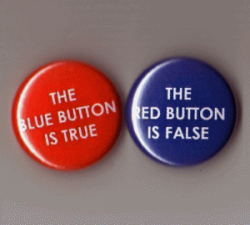
The information paradox
Break the story first - correct the facts later
One would think that the more information we have access to, the better decisions we'll make. Good in theory, but the reality is very different.
While the internet brings valuable information directly into our homes or phones, with it comes scads of bad data, misconceptions, scams, wrong-headed thinking and much more. The mass media is increasingly unreliable as an information source, partly because of what I mentioned above, but also because the media is trying to feed a voracious 24/7 news cycle, via Twitter, Facebook, blogs, Cable TV and talk radio.
As well, in the rush to be first on a story, "breaking" news reports are often released before the true facts are known, and repeatedly updated or corrected over a period of a day or so. An early report with incorrect information can quickly spread. If you catch the early report but miss the update, you've just been misinformed by what once was a "trusted" source.
Photo: Paradox By Brett Jordan [(CC BY-NC-SA 2.0] on Flickr.
How do you sort out the good from the bad? - Avoid the information "echo chamber"
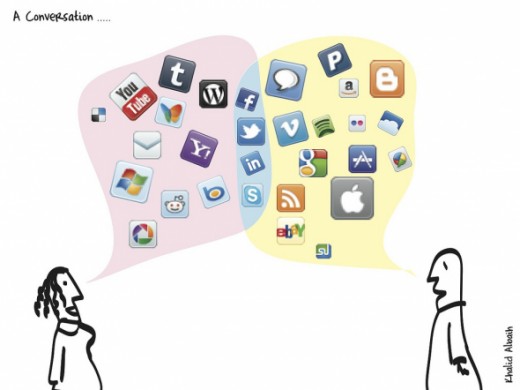
The worst thing to do is narrow your focus down to a few topics or sources that you are interested in or tend to "agree" with. The "echo chamber" of like-minded thinking may ramp up emotions but it certainly doesn't encourage critical thinking. That requires fair-minded consideration and discussion of new ideas, no matter the source.
Social networks and those insidious "you may also like" algorithms have the potential to funnel you into an interest "category", helpfully offering up suggestions based on your recent internet activity. If you and your "friends" all function within the same facebook group, twitter stream, and pinterest boards, you could be "sharing" less information than you might find exploring on your own.
Actively seeking out a variety of opposing, credible and authoritative sources is the best way to gather information. You can analyse the reasoning behind the author's position, and check it against what you might already know or have an opinion about.
Not every issue requires this type of deep research, but it's a very useful exercise to develop your reasoning skills and learn how to assess the credibility of the information you discover.
Photo: A Conversation By khalid Albaih [CC BY-NC-SA 2.0] on Flickr.
Books - The path ahead...
Get in the game and explore the possibilities of what our future might look like. Imagination, creativity and technology are the keys.


